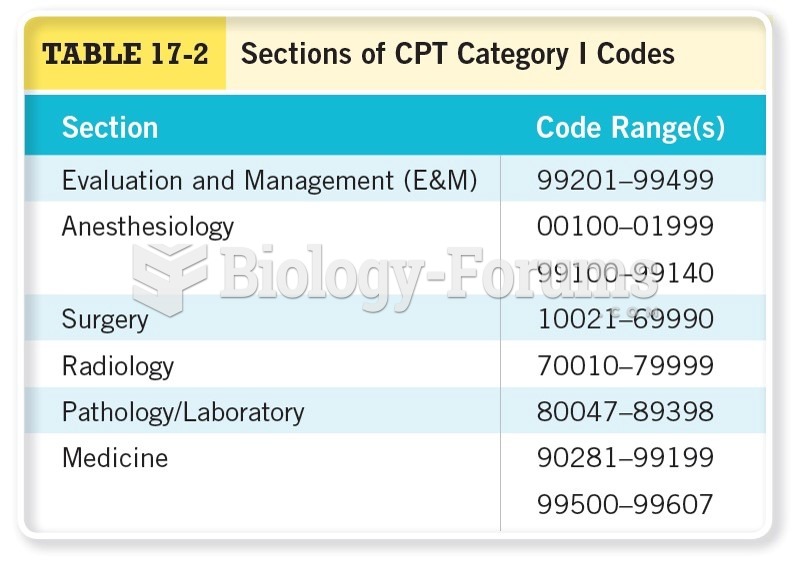|
|
|
Side effects from substance abuse include nausea, dehydration, reduced productivitiy, and dependence. Though these effects usually worsen over time, the constant need for the substance often overcomes rational thinking.
Most childhood vaccines are 90–99% effective in preventing disease. Side effects are rarely serious.
The first oral chemotherapy drug for colon cancer was approved by FDA in 2001.
If you use artificial sweeteners, such as cyclamates, your eyes may be more sensitive to light. Other factors that will make your eyes more sensitive to light include use of antibiotics, oral contraceptives, hypertension medications, diuretics, and antidiabetic medications.
Urine turns bright yellow if larger than normal amounts of certain substances are consumed; one of these substances is asparagus.







